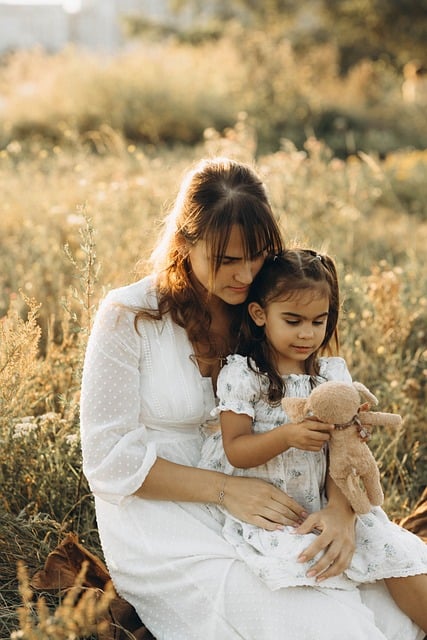Post-divorce, co-parenting strategies focus on structured custody arrangements through parenting plans, emphasizing open communication, respecting roles, and prioritizing the child's welfare. Joint custody guidelines promote consistent routines, while conflict resolution techniques encourage calm, collaborative decision-making for the child's best interests. Custody mediation tips facilitate harmonious relationships, avoiding legal disputes, and ensuring child custody rights are maintained within mutually agreeable parenting plans.
Setting clear boundaries is essential for maintaining healthy co-parenting dynamics, especially following a divorce or separation. Understanding the impact of custody arrangements on your relationship with your ex and your children is crucial. This article explores effective co-parenting strategies, shared custody tips, and communication guidelines to navigate parenting plans after divorce successfully. We delve into joint custody guidelines, conflict resolution techniques, and even custody mediation tips, empowering you to foster positive co-parenting dynamics for the well-being of your family.
Understanding Custody Arrangements and Their Impact on Co-parenting
After a divorce or separation, establishing clear and healthy custody arrangements is vital for maintaining effective co-parenting strategies. These arrangements, detailed in parenting plans, dictate how time is split between both parents, ensuring each has meaningful involvement in their child’s life. Shared or joint custody tips often involve creating structured schedules, fostering open communication, and respecting each other’s roles.
Effective co-parenting communication hinges on navigating the joint custody guidelines established during the divorce process. This includes adhering to agreed-upon parenting plans, engaging in conflict resolution techniques for disagreements, and prioritizing the child’s well-being above personal biases. Custody mediation tips can also facilitate open dialogue, helping parents find common ground and make decisions collaboratively rather than through contentious legal battles.
Implementing Effective Co-parenting Strategies for Positive Dynamics
Implementing effective co-parenting strategies is pivotal for fostering positive dynamics between parents after divorce or separation. Shared custody tips and parenting plans should prioritize open communication, ensuring both parents are actively involved in decisions regarding their children’s lives. Effective co-parenting communication involves regular, respectful exchanges about the child’s well-being, school, medical needs, and extracurricular activities. Joint custody guidelines emphasize the importance of consistency in routines, rules, and expectations to provide stability for the child.
Conflict resolution in co-parenting is a crucial aspect that requires patience and understanding. Custody mediation tips encourage parents to approach disagreements calmly, focusing on what’s best for the child rather than personal grievances. This may involve seeking professional help from therapists or mediators who can guide them through difficult conversations and help establish mutually agreeable custody arrangements. By adhering to these strategies, co-parents can navigate their relationship more harmoniously, ensuring their children remain at the center of their shared responsibility.
Communication Tips for Success in Joint Custody: Overcoming Challenges
Maintaining open and honest communication is a cornerstone of successful co-parenting strategies for parents with shared custody arrangements. Effective co-parenting communication involves regular, clear exchanges about the child’s well-being, schedule, and any significant decisions affecting their life. Parents should establish consistent methods of communication, such as video calls, phone meetings, or joint digital documents, to ensure information flows smoothly between both households. Addressing issues promptly and respectfully can prevent conflicts from escalating.
When navigating custody mediation tips and joint custody guidelines, it’s crucial to approach conversations with empathy and a problem-solving mindset. Conflict resolution in co-parenting often requires setting aside personal feelings and focusing on what’s best for the child. Parents should be prepared to compromise, listen actively, and consider alternative perspectives. Prioritizing collaboration over contention fosters a cooperative environment, ensuring that parenting plans after divorce remain fair and beneficial for all parties involved, especially the children.
Navigating Conflict Resolution and Mediation for Healthy Co-parenting Relationships
Navigating conflict resolution and mediation is a vital component of maintaining healthy co-parenting dynamics, especially following divorce or separation. Effective communication and collaborative problem-solving skills are key to reaching mutually agreeable custody arrangements that prioritize the best interests of the children involved. Co-parenting strategies such as regular, open dialogue; clear, respectful interactions; and a commitment to shared responsibilities can significantly enhance the co-parenting experience for both parents and children alike.
When disagreements arise, considering mediation—a neutral third-party facilitated discussion—can be an invaluable tool. It provides a safe space to air differences, clarify goals, and develop creative solutions that honor both parents’ child custody rights while ensuring the child’s needs are at the forefront. Implementing shared custody tips, such as creating structured routines, establishing consistent rules, and fostering positive co-parenting communication, can help avoid or de-escalate conflicts, promoting a more harmonious and nurturing environment for the family’s post-divorce parenting plans.
Maintaining healthy co-parenting dynamics is essential for fostering a stable and nurturing environment for children following a divorce or separation. By understanding the impact of custody arrangements, implementing effective strategies, and prioritizing open communication, parents can navigate shared custody responsibilities successfully. Conflict resolution techniques and mediation serve as valuable tools to resolve disagreements, ensuring a cooperative rather than contentious relationship. These joint custody tips promote positive co-parenting, ultimately benefiting the well-being and happiness of both children and their parents.
